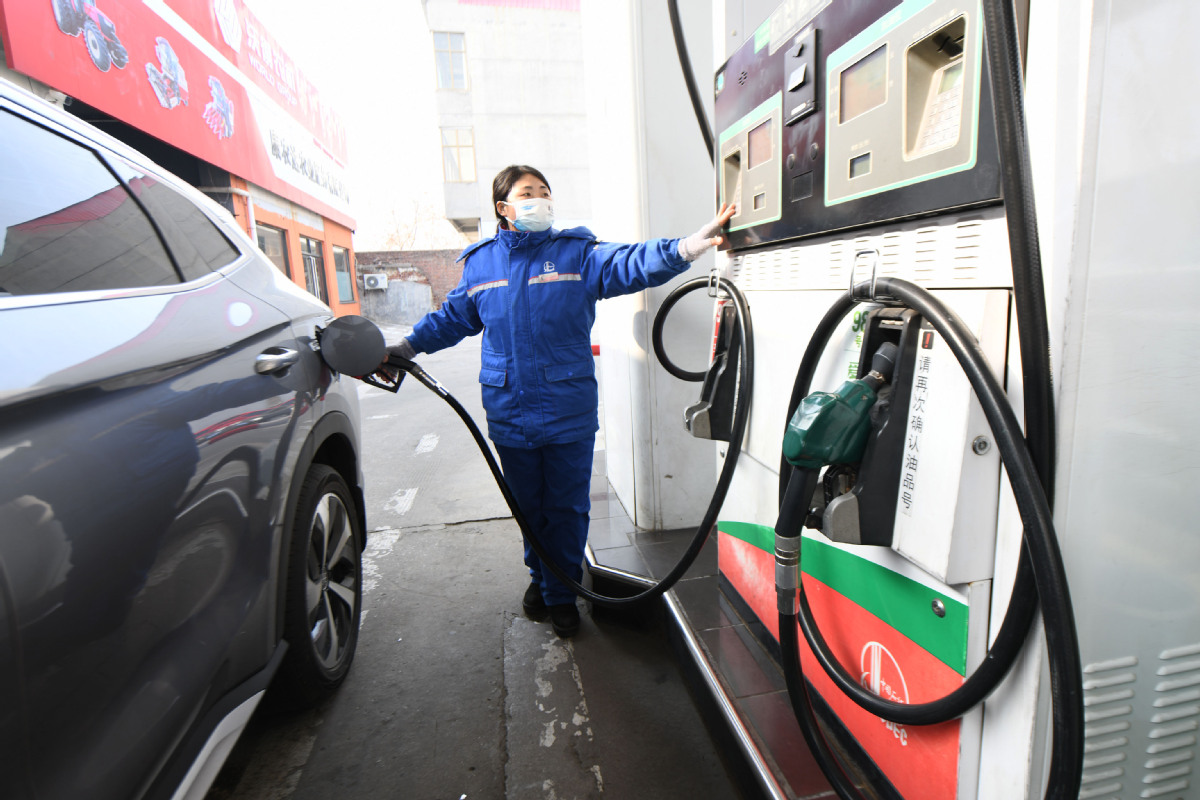Prices of oil products likely to rise on Thursday


China will likely raise prices of refined oil products on Thursday as global crude prices have been rising since the end of December due to geopolitical tensions.
Concerns about an escalation of Russia-Ukraine tensions are driving oil prices up, said Carsten Fritsch, energy analyst at Commerzbank Research, in a note on Monday.
During the Chinese Lunar New Year holiday period earlier this month, global oil prices were hovering around record highs since 2016, and kept climbing during the past week.
Prices of refined oil products in China, including gasoline and diesel, are expected to be adjusted upward by 100 yuan ($15.74) to 145 yuan per ton on Thursday.
The final decision, however, is still under consideration by the National Development and Reform Commission, Xinhua News Agency reported on Tuesday.
If the adjustment comes to pass, it would mark the fourth oil price rise this year.
SCI International, a commodity market information service provider in China, estimates that diesel and gasoline prices in China will likely rise by 145 yuan per ton on Thursday.
JLC, a leading market intelligence and consultancy service provider for energy and commodities in China, expects the figure to be 150 yuan per ton. BloombergNEF is bullish on oil prices for the week ahead.
"Oil product markets are expected to remain tight over the coming weeks as refineries head into the maintenance season with product inventories hovering at very low levels," said Wayne Tan, an analyst with BloombergNEF.
"Oil demand also appears to have endured the worst of the Omicron wave as driving activity picks up and commercial passenger jet fuel demand rose for the first time in four weeks."
According to Luo Zuoxian, head of intelligence and research at the Sinopec Economics and Development Research Institute, global oil inventory has been low due to certain geopolitical tensions and supply shortfalls related to OPEC+.
OPEC+ refers to a group of nations that are allied with OPEC to cut production in order to boost oil prices beginning 2016.
While not formal members of the cartel, the countries have worked with OPEC on production quotas through the COVID pandemic. OPEC+, led by Russia, includes Azerbaijan, Bahrain, Brunei, Kazakhstan, Malaysia, Mexico, Oman, South Sudan and Sudan.
"Global energy demand is also getting out of the shadow of the pandemic with a clear rebound, which will contribute to the coming rise in oil prices," he said.
According to Luo, the potential for economic recovery will largely drive oil and gas demand, while the oil and gas exploitation, exploration and downstream investment activities have been scaled down, which will also contribute to the anticipated rise in China's oil prices.
He also said geopolitical tensions have caused prices to rise in domestic and overseas markets. While the increasing investment in oil and gas exploitation as well as oil and gas storage facilities will rein in any runaway tendency, prices of refined oil products are expected to remain high this year.
The West Texas Intermediate for March delivery rose by $2.36, or 2.5 percent, to settle at $95.46 a barrel on the New York Mercantile Exchange on Monday.
Brent crude for April delivery increased by $2.04, or 2.2 percent, to close at $96.48 a barrel on the London ICE Futures Exchange.
The International Energy Agency revised its forecast for global oil demand this year considerably upward, while it also warned that the gap between OPEC+ output and its target levels swelled in January.
The Paris-based energy watchdog said the shortfall is expected to deepen as some OPEC+ members struggle with production constraints, exacerbating market tightness.




































